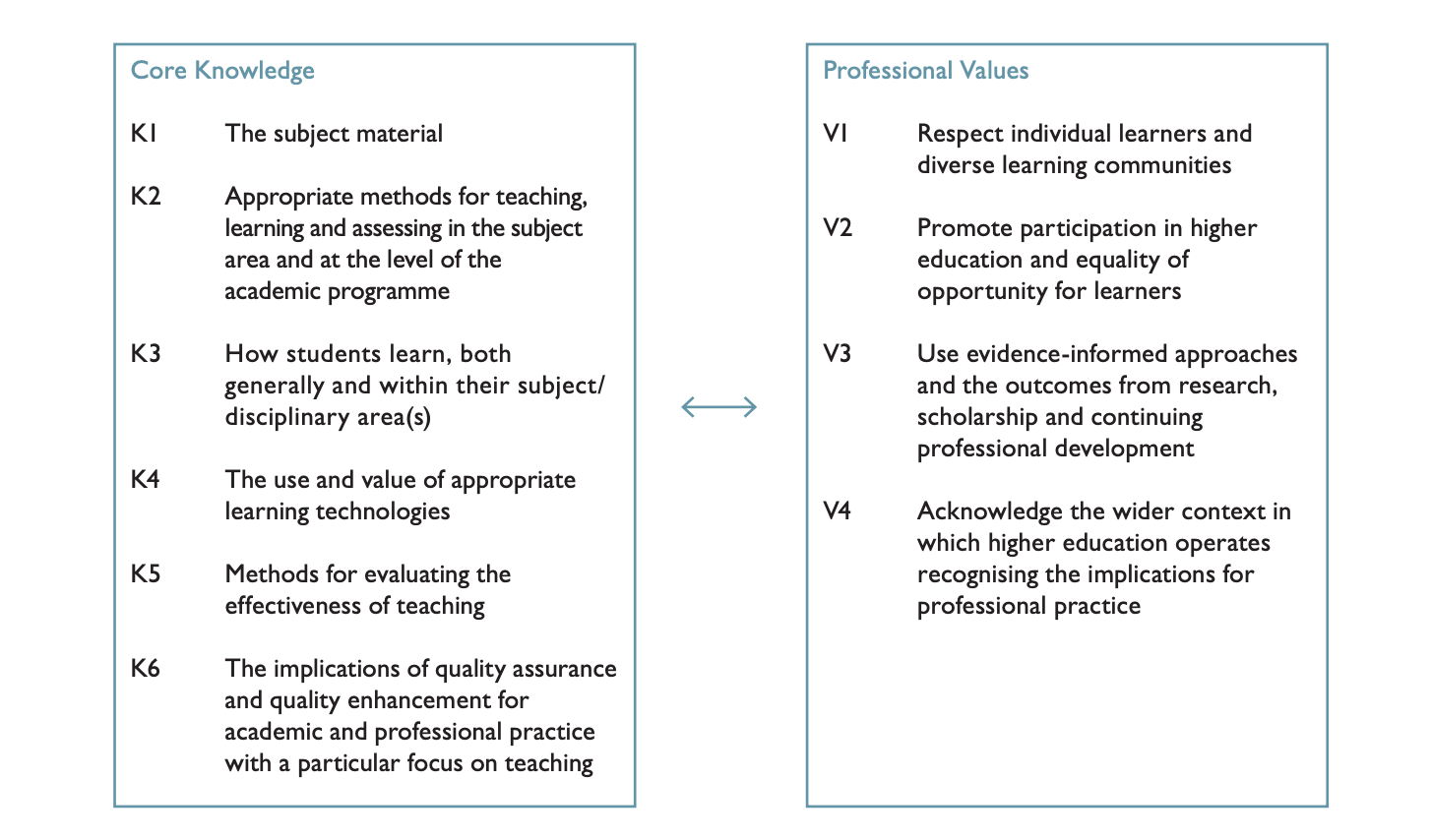Reflecting on the various elements of the UK PSF, it is clear there are many factors to supporting student learning in Higher Education effectively. I was lucky in the first week of this module, to find that we were considering the UK PSF as I have recently submitted my application for Fellowship to the HEA. This process required me to look in detail at the framework and consider my own practice in supporting student learning with Higher Education and where that sat within both the UK PSF and the HEA framework.
Looking at my notes from the podcasts, I have clearly focused on the design and planning of learning activities and on the assessment and feedback element of the session. These are two key areas in which I think learning at a HE level differs from that which students may have experienced before. Certainly, there is much more independent learning at HE level and students are required to consider their own thoughts and opinions in line with the subject matter, which will then allow them to draw their own theories and responses to the module content.
 Example from the UK PSF
Example from the UK PSF
I have been challenged by the some of the points covered in K1 – K5, in particular, ‘subject area knowledge’ as it is often hard to find the time to devote to my own practice and research amongst all other commitments that I have attached to my role. As a Learning Technologist, it is important that I keep up to date with developments in technology suitable for the sector and how this might be applied the pedagogy, so this idea did not surprise me. However, I was surprised to find that ‘Learning Technologies’ featured so heavily in the K1 – K5 section, as this does not reflect the attitude of most academics I have come across in my day-to-day work, who are far more resistant to the use of technology in teaching. One might imagine, with it ranking so highly on the UK PSF, that more academic colleagues would be willing to explore and experiment with these kinds of technologies.
I have learnt much about my own experience of supporting student learning, in particular that my own experience is somewhat limited by the fact that I support academic colleagues to embed digital into their teaching practice and therefore my teaching sessions usually take the form of a CPD workshop rather than a lecture or a seminar as would traditionally be the case with student-focused teaching. However, I can draw on experiences that I had of teaching UG students during my Master’s Degree programme. In this case, I learnt much about the way that students learn, as media students by virtue of the discipline fall into HE study from many different backgrounds and, for this reason, there is a great discrepancy in their levels of experience. Designing modules at Level 1 which seek to bring all students up to the same level of understanding, has been particularly challenging for me in the past. I have learnt a lot more about how I could approach this task from studying the UK PSF and the various approaches students take to learning, as covered in K1 – K5.
It is obvious from my reflections that my main strengths and weakness both like within the band of K1 – K5. I feel that I am very confident in adapting learning support and focusing on the wider industry (V1 – V4), but could do with further experience in areas A1 – A5, simply because my current role does not afford much of an opportunity to be involved in the design and planning of large-scale learning activities. That being said, my studies for this PGCHE course will cause me to become more involved in this regard, particularly when several schools with the College of Arts at Lincoln will soon be going through a re-validation and I can actively position myself to advise and support with the digital strand of this process which I hope will afford me greater experience of the design and planning of programmes of study.
